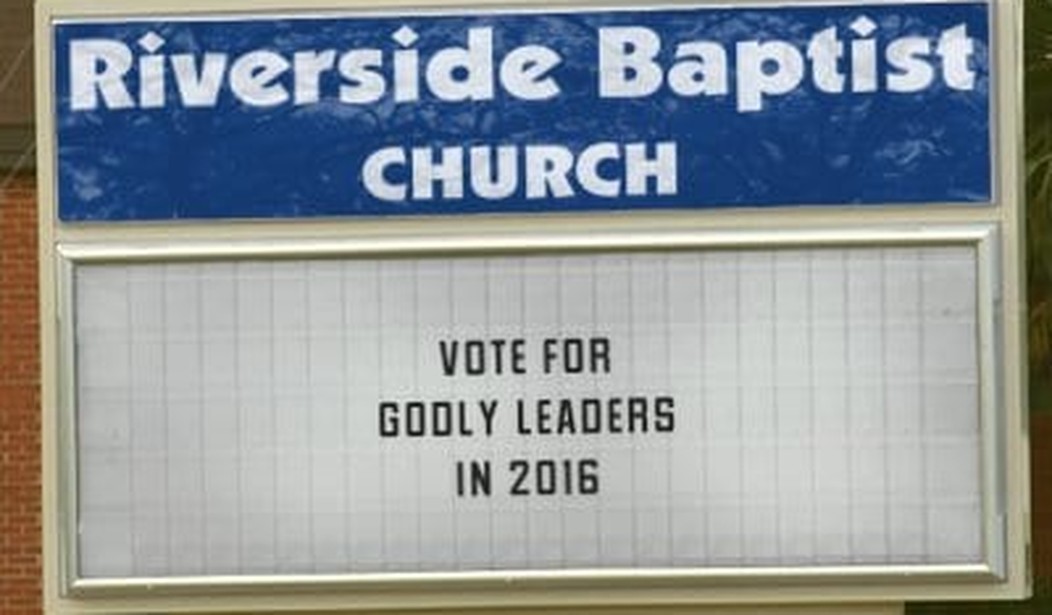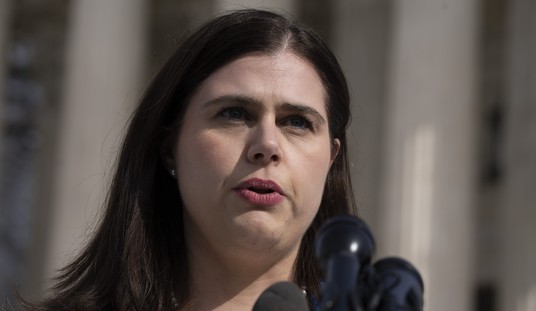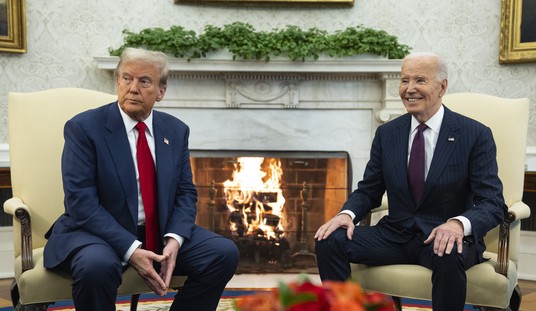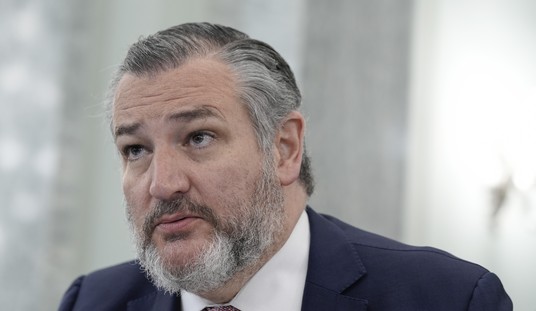Will 2016 be remembered as the year men of the cloth became political candidates?
Many Christians see the United States as having turned away from God, and now hundreds of pastors are going to do something about it. Over 500 pastors have pledged to run for political office in 2016, thanks to the efforts of evangelical organizer David Lane. “We are raising an army,” Lane declared unapologetically.
These pastors aim to restore America’s cultural heritage. Following the legalization of homosexual marriage last year, many Christians think their values have been marginalized in the public square, and these pastors are fighting back.
“Somebody’s values are going to reign supreme: our values or their values,” Lane told the Washington Times. “If our people are not voting, and are not being salt and light, and not engaging at the public square, the other side’s values are going to reign supreme.”
The Political Power of the Pulpit
In 2014, Pastor Rob McCoy ran for political office. “Every single person in this room has been inculcated and trained to think that any time a pastor opens his mouth to talk about politics from the pulpit, that’s wrong,” McCoy told his church. “You’ve been taught incorrectly. There should be no other place that you should speak of it but from the pulpit.”
McCoy mobilized 650 volunteers — mostly from his church. Outspent and shunned by Republican leaders, the pastor nevertheless came within 5,000 votes (out of 110,000 cast) of victory in his race for California State Assembly. McCoy then went on to win a seat on the Thousand Oaks City Council. His campaign caught Mr. Lane’s attention.
“There are 100,000 pastors on my email list, and I started thinking what if the Lord were to call 1,000 pastors in 2016 to run for county commissioner, and city council, and school board, and mayor, and Congress,” Mr. Lane speculated. “Let us say they did only half as good as my pastor did with volunteers — they only had 300 volunteers per campaign — that would be a 300,000 grass-roots precinct-level explosion in the public square.”
“It would change America, and that is what I am up to,” Mr. Lane explained.
Lane founded the American Renewal Project to make a case for pushing Christian values in the public square. Under that umbrella, he launched the “Issachar Project,” which trains pastors to become active in politics and aims to recruit 1,000 faith leaders to run for political office in 2016.
“Two thousand pastors and spouses have attended our Issachar Training in 2015,” Lane told the Washington Times in November. Texas Senator Ted Cruz attended ten of these trainings, and Louisiana Governor Bobby Jindal spoke at two different training sessions. While Jindal dropped out of the presidential race recently, Cruz is rising in the polls, largely due to evangelical support.
A Fundamental Shift
Mobilizing faith leaders for political candidates is nothing new — President George W. Bush famously galvanized religious conservatives in his 2004 reelection, and the evangelical vote helped former Massachusetts Governor Mitt Romney garner more support in 2012, resulting in President Obama winning reelection by a smaller margin than in 2008.
Evangelicals have often pushed for political change on a grand scale — searching for a “kind of godly hero, a Christian leader who could win the White House and undo every culture-war defeat,” according to the New York Times’ Ross Douthat. Douthat lists Pat Robertson, Mike Huckabee, Sarah Palin, and Michele Bachmann as examples of the kind of figures in whom evangelicals tend to place their hopes for a new earth.
“Evangelical culture…has a particular fondness for the idea of the history-altering individual, the hope that ‘one person can stand at the crossroads and change things for good,’” Douthat explains. Cultural and political change does not work like this, however. “Instead, it comes from networks, institutions, interest groups, and it requires strategy, alliance-building and steady pressure.”
Organizers like Lane seem to have learned this lesson. Rather than champion one presidential candidate, in hopes that the right leader can bring a cultural revolution on his own, Lane calls on pastors to run for office at smaller levels — building a long-term political movement.
“This is a fundamental shift in strategy,” explained John Fea, a history professor at Christian Messiah College. “Rather than forcing this from the top down, this is about a grassroots approach to changing the culture by embedding ministers in local politics from the ground up.”
Fighting for Values
David Lane points to huge losses in the long ideological battle with secularists to explain the motivation for his new movement. From the removal of the Bible from public schools, to the legalization of abortion, and even the soaring national debt and growing threats from radical Islamic terrorism, Lane sees America’s heritage and morality under assault.
The Bible clearly condemns homosexuality, and Christians from the early church onward have condemned abortion. The book of Proverbs constantly warns about the dangers of debt, and a Christian’s duty to serve the poor does not entail using the government to redistribute wealth. In these areas particularly, Christian values are indeed in jeopardy.
Of the 80 million evangelicals in the United States, Lane estimates that less than half of them are registered to vote and many of those who are registered sit on the sidelines on election day. According to him, the nation is losing its culture and heritage because secularists now dominate “public education, higher learning, the mainstream media, and Hollywood.”
“The mark of a decadent society is the exaltation and normalization of sin,” Lane told the Washington Times. “That is what they are doing.”
The Separation of Church and State
Even if Christian morality and heritage are under assault in culture and government, many Christians worry about marrying faith and politics. One particular concern arises in the notion that there should be — in Thomas Jefferson’s oft-misquoted words — “a separation between church and state.”
The First Amendment to the Constitution explicitly states that “Congress shall make no law respecting an establishment of religion,” meaning that no religion shall be considered the official faith of the United States. In the very next clause, however, the First Amendment says that Congress is barred from “prohibiting the free exercise” of religion.
As David Lane argues, “the founding fathers never meant for the church not to participate in government — they meant for the government not to interfere with the church.”
A great deal of history backs up Lane’s claim. Six of the 91 members of the first Congress were ordained members of the clergy — 7 percent, as compared with today’s measly 1 percent. The Declaration of Independence refers to God four times, and when President George Washington instituted the holiday of Thanksgiving, he called for a “day of prayer and thanksgiving.”
The intersection of Christianity and politics can prove quite thorny. Christians must be very careful not to place their ultimate hopes in the worldly pursuit of power or to equate Jesus’ miracle of salvation with the American view of freedom. Nevertheless, this movement of pastors into politics may inspire others to run for local political office, and it certainly has the potential to mix things up.









Join the conversation as a VIP Member